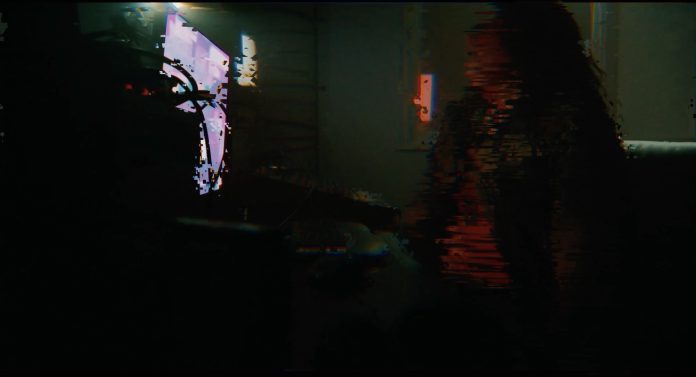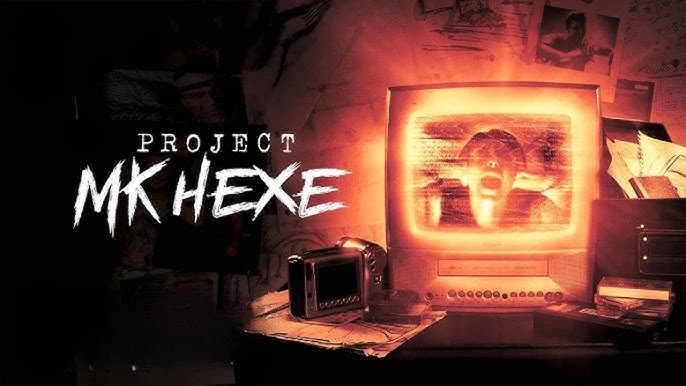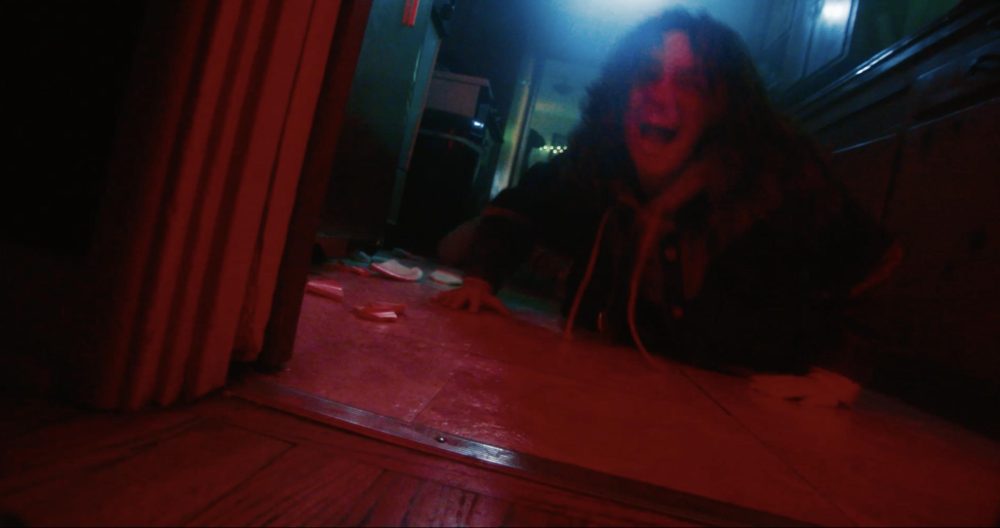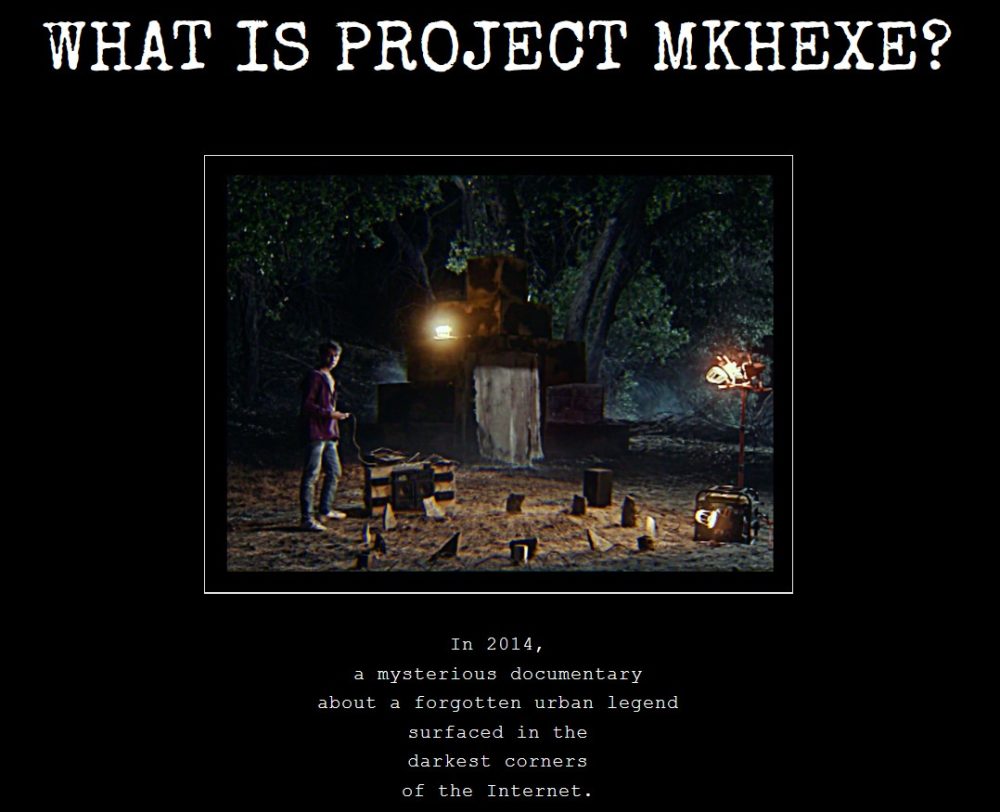Mockumentaries and conspiracy theories go together like unsuspecting test subjects and experimental hallucinogens. It’s a winning combination that spotlights the strange version of “truth” conspiracies purport. Found footage mockumentaries shape themselves around this, letting its first-hand account approach establish a sense of veracity regarding the weird events that are being captured on film, phone camera, or old camcorder. Done right, it can result in an unsettling form of storytelling that’s as creepy as it is intoxicating. Given the proximity of the characters to the central mystery, you can’t help but want to know how much of the conspiracy can actually be proven. And how real it can be made to look by the filmmakers.
Gerald Robert Waddell’s Project MKHEXE achieves precisely that, a terrifying found footage descent into urban legend territory that’s carried by a refreshingly complex mystery you’ll want all the answers to. If the ‘MK’ in MKHEXE sounds familiar, it’s because you’ve probably seen it in something called MK-ULTRA, a CIA program involving human experimentation with drugs meant to weaken psychological safeguards via brainwashing and psychological torture. Naomi Klein’s 2007 book The Shock Doctrine explores this in part as she builds the history and method of “disaster capitalism.” Scott Sampila, Brandon Eckner, and Stewart Kenneth Moore’s graphic novel Project MK-Ultra is another, more creative effort at exploring the program, though it features more monstrous hallucinations in its telling. MKULTRA influences a lot of Project MKHEXE, and it truly is its own horror story.
MKHEXE follows Tim (Ignacyo Matynia), a photographer that turns into a documentarian after his brother Sean (Will Jandro) commits suicide under mysterious circumstances. It looks like the brother’s death is linked to something called Project MKHEXE, a Cold War era program he was researching online through some truly obscure and secretive websites hidden deep in message boards and file directories. The investigation takes a quick turn into the bizarre as Tim discovers a series of tapes and notebooks that talk about failed government experiments into mind control that instead led to the creation of some sort of nightmare machine. And then things get scary.
The movie does something few horror outings today manage to achieve: establish multiple themes. At its core, you can argue the movie is about the shock and pain of loss via suicide in the family, especially from the point of view of a sibling. Tim’s entire reason for making the documentary is to explain his brother’s death, which he refuses to attribute to mere depression. It goes through a multitude of emotional phases, from suspiciousness to denial to madness, and each one affects the people involved differently. It keeps the viewer on its toes as each new emotional development impacts the pace and the stakes of the story.
As Tim cycles through his feelings on Sean’s death, the presence of MKHEXE never dissipates. It’s still a very real consideration that requires mining the same resources Sean did in the hopes of getting some answers. This is where the nightmare machine takes on a whole new meaning.
The lack of concrete or absolute facts that can confirm this MKHEXE somehow found Sean and broke him to the point of suicide means both Tim and the audience have to consider the possibility that too much exposure to urban legends and the rabbit holes they create can lead to catastrophic consequences. It’s a comment on the dangers hidden on the internet and how searching for them can lead to a malignant kind of darkness that infects real life. Knowledge of horrible things can exact a toll.
Director Robert Waddell captures this quite well with visual distortion and grainy sound recordings that only deepen the mystery rather than explain it. In fact, by the end of the movie, you’re left with multiple possible answers as to the nightmare machine and its mechanisms. Like any good conspiracy, no amount of information is enough to pull the veil back on the things lurking in the shadows or operating behind the computer screen. This works to the film’s advantage.
In a sense, the audience is invited to engage with each strange happening to see if they can glean any usable clues or meanings. This is made even more enticing by the creation of a faux website called WhatIsProjectMKHexe.com for people to visit. It’s a strong worldbuilding source that provides more detail on some of the things Sean found in his initial searches. It paints the deceased brother as a victim of obsession, as if looking too deeply into any conspiracy incurs an infection of sorts that stains reality. It’s an idea that’s well built into the movie. The website just expands on the insidiousness of the program.
Not everything lands with the necessary force to be convincing throughout the movie’s runtime. The first half of the movie is definitely the creepiest. The many unknowns affecting Tim, his brother’s death, and MKHEXE is fertile ground for speculation on the audience’s side, and we love populating the unknown with incredible ugliness. Once some answers are given, or hinted at more forcefully by the halfway point, certain clichés start settling in. Also, Robert Waddell borrows somewhat too freely from the movies that influenced him (especially Paranormal Activity). The story’s unique and inventive enough for this. Some restraint would’ve gone a long way.
Project MKHexe stands out in the still crowded found footage arena. Its ideas are sound and they generate a kind of terror that is all too real when it comes to the dark things that are just waiting to be found on the internet. It showcases a thematic versatility more horror movies would do well to take from. It’s unafraid of complexity and of challenging its viewers. It also rewards those who know about MKULTRA without imposing that knowledge as the price of admission for enjoyment. Most importantly, it’s convincing in its framing of fact vs. fiction as it pertains to urban legends and conspiracy theories. And like many of those tales, some of which are difficult to cast as pure fabrication, it lingers. I just hope that out of all the terrible things humanity is yet to create, a nightmare machine isn’t among them.








Thanks for the review, and the due diligence. We’re glad you enjoyed it!
Comments are closed.